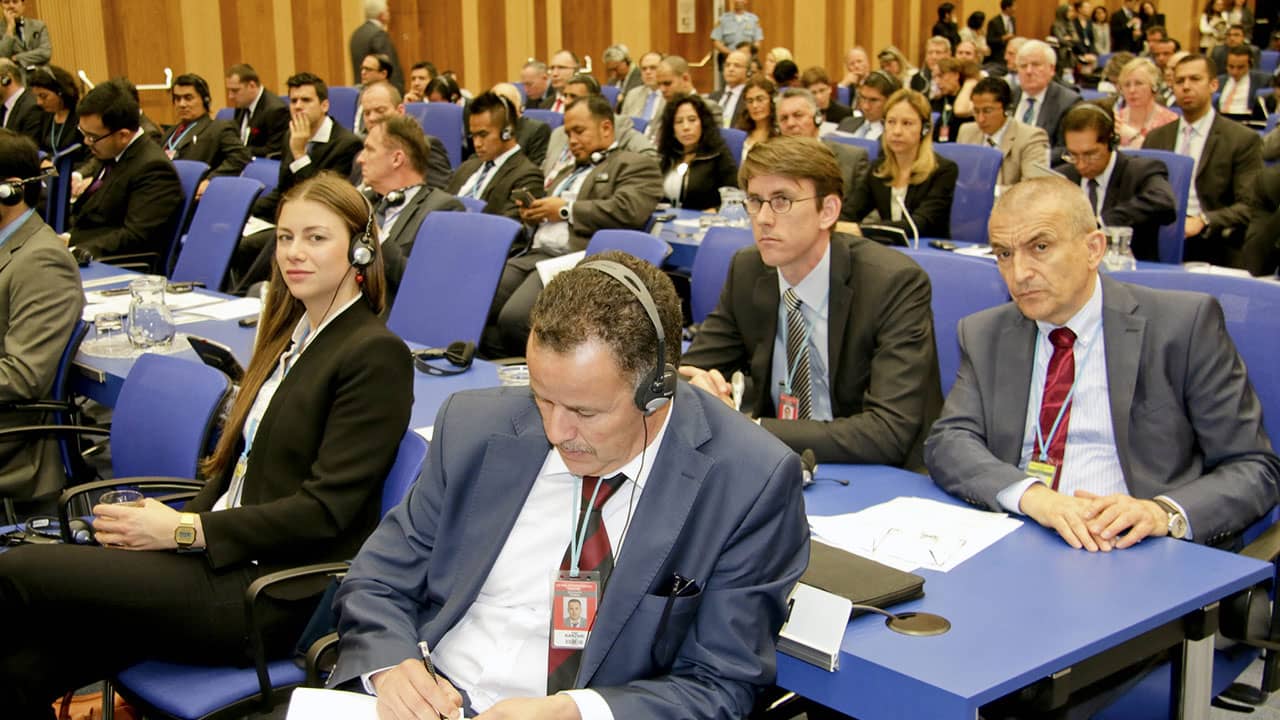
On the occasion of the 23rd session of the Commission on Crime Prevention and Criminal Justice (CCPCJ) that took place from 12-16 of May 2014 at the United Nations Office for Drugs and Crime (UNODC) in Vienna, Austria, PGA organized a Round-Table discussion at the Parliament of Austria on May 14 from 9:30am–12pm, on “Ending Impunity for International Crimes through Multilateral Interstate Cooperation.”
Moreover, PGA Members participated and addressed side event to the 23rd session of the CCPCJ at the UN on the Protection of Victims, the MLA initiative and the abolition of the Death Penalty.
PGA supports the proposal of a group of states aimed at launching the negotiation and adoption of a new treaty on Mutual Legal Assistance (MLA), including extradition, through which States will be better equipped to combat effectively genocide, crimes against humanity and war crimes. (see Background document on MLA Initiative).
The goal of the PGA participation of the UN Commission on Crime Prevention and Criminal Justice in Vienna was to highlight the benefits of this proposal and to reach out to UN Member States in order to secure their support. Moreover, the goal of the Roundtable-Discussion was to provide expert participants the possibility to get informed about the initiative, raise concerns and discuss best practice examples and share their experiences on multilateral state cooperation to fight international crimes.
PGA Members Ms. Petra Bayr, MP (Austria), Mr. Abdu Katuntu, MP (Uganda) and Mr. Mark Pritchard, MP (United Kingdom), briefed participants on their personal experiences as legislators and PGA Members in the fight against impunity and the gap in existing legislation for interstate cooperation for the arrest, extradition and national judicial proceedings to bring perpetrators of international crimes to Justice. PGA Members as individual legislators believe in the importance of this initiative for their work regarding domestic prosecutions. (see speeches to the right).
The PGA Secretary-General Dr. David Donat Cattin, on behalf of the PGA network, encouraged all states to join MLA initiative. He stressed that while PGA cannot change the position of those states who are openly against an MLA Treaty because it is their national agenda to protect heads of states and guarantee them impunity for the omission of crimes, it is important that those states who want to fight impunity join their forces. The MLA Imitative/Resolution shall be discussed at a forum that requires a majority vote as a quorum, since consensus will not be reached on this issue.
Members of Intergovernmental organizations and the UN stressed that it is an obstacle to their work that the implementing legislation for many important international treaties, such as the Rome Statute, is lacking.
PGA Members concluded that the important issue is the strategy used towards the MLA. The next step now is to identify the appropriate forum to discuss the resolution. The message to be given to the international community is that no one wants a safe havens for international crimes. The starting point therefore is to create a unanimous front.



